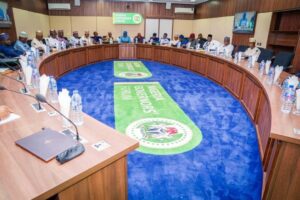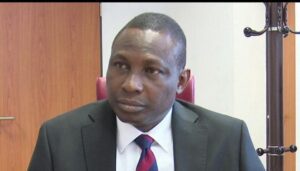
Average price of 5kg cooking gas stood at N4,588.75 in January – NBS
The National Bureau of Statistics (NBS), says the average price of 5kg of cooking gas increased from N4,565.56 recorded in December 2022 to N4,588.75 in January 2023.
This is contained in the Bureau’s “Cooking Gas Price Watch’’ for January 2023 released on Friday in Abuja.
The report said the January 2023 price represented a 0.51 per cent increase compared to what was obtained in December 2022.
It said on a year-on-year basis, the increase was 25.46 per cent from N3,657.57 recorded in January 2022 to N4,588.75 recorded in January 2023.
On state profile analysis, the report showed that Kwara recorded the highest average price of N4,962.50 for 5kg cooking gas, followed by Plateau at N4,945.50, and Adamawa at N4,936.67.
It said on the other hand, Enugu recorded the lowest price at N4,119.23, followed by Anambra and Rivers at N4,183.14 and N4,210.00, respectively.
Analysis by zone showed that the North-Central recorded the highest average retail price of N4,859.60, followed by the North-West at N4,616.66.
“The South-East recorded the lowest average retail price at N4,408.99,’’ the NBS said.
The NBS also said the average retail price for refilling a 12.5kg cooking gas rose by 0.28 per cent on a month-on-month basis from N10,248.97 in December 2022 to N10,277.17 in January 2023.
“On a year-on-year basis, this rose by 38.63 per cent from N7,413.25 recorded in January 2022 to N10,277.17 in January 2023.’’
State profile analysis showed that Benue recorded the highest average retail price of N11,260.67 for 12.5kg cooking gas, followed by Cross River at N10,833.33 and Ebonyi at N10,763.57.
On the other hand, the report showed that the lowest average price for 12.5kg of cooking gas was recorded in Yobe at N9,550.00, followed by Taraba and Gombe at N9,845.00 and N9,850.00.
Similarly, the average retail price per litre of kerosene rose to N1,153.40 in January 2023 on a month-on-month basis, showing an increase of 4.42 per cent compared to N1,104.61 recorded in December 2022.
According to its National Kerosene Price Watch for January 2023, on a year-on-year basis, the average retail price per litre of kerosene rose by 163.87 per cent from N437.11 in January 2022.
On state profile analysis, the report showed the highest average price per litre of kerosene in December 2023 was recorded in Abuja at N1,566.67, followed by Lagos at N1,411.11 and Plateau at N1,383.33.
“On the other hand, the lowest price was recorded in Jigawa at N891.67, followed by Edo at N925.93 and Katsina at N935.19.
The NBS said that analysis by zone showed that the South-West recorded the highest average retail price per litre of Kerosene at N1,232.15, followed by the South-East at N1,223.95
It said that the North-West recorded the lowest average retail price per litre of kerosene at N1,003.54.
The report said the average retail price per gallon of kerosene paid by consumers in January 2023 was N3,886.11, indicating a 3.54 per cent increase from N3,753.38 recorded in December 2022.
“On a year-on-year basis, the average price per gallon of kerosene increased by 154.20 per cent from N1,528.74 recorded in January 2022.



